History
History books examine past events, civilizations, and figures, aiming to inform, interpret, and analyze historical developments.
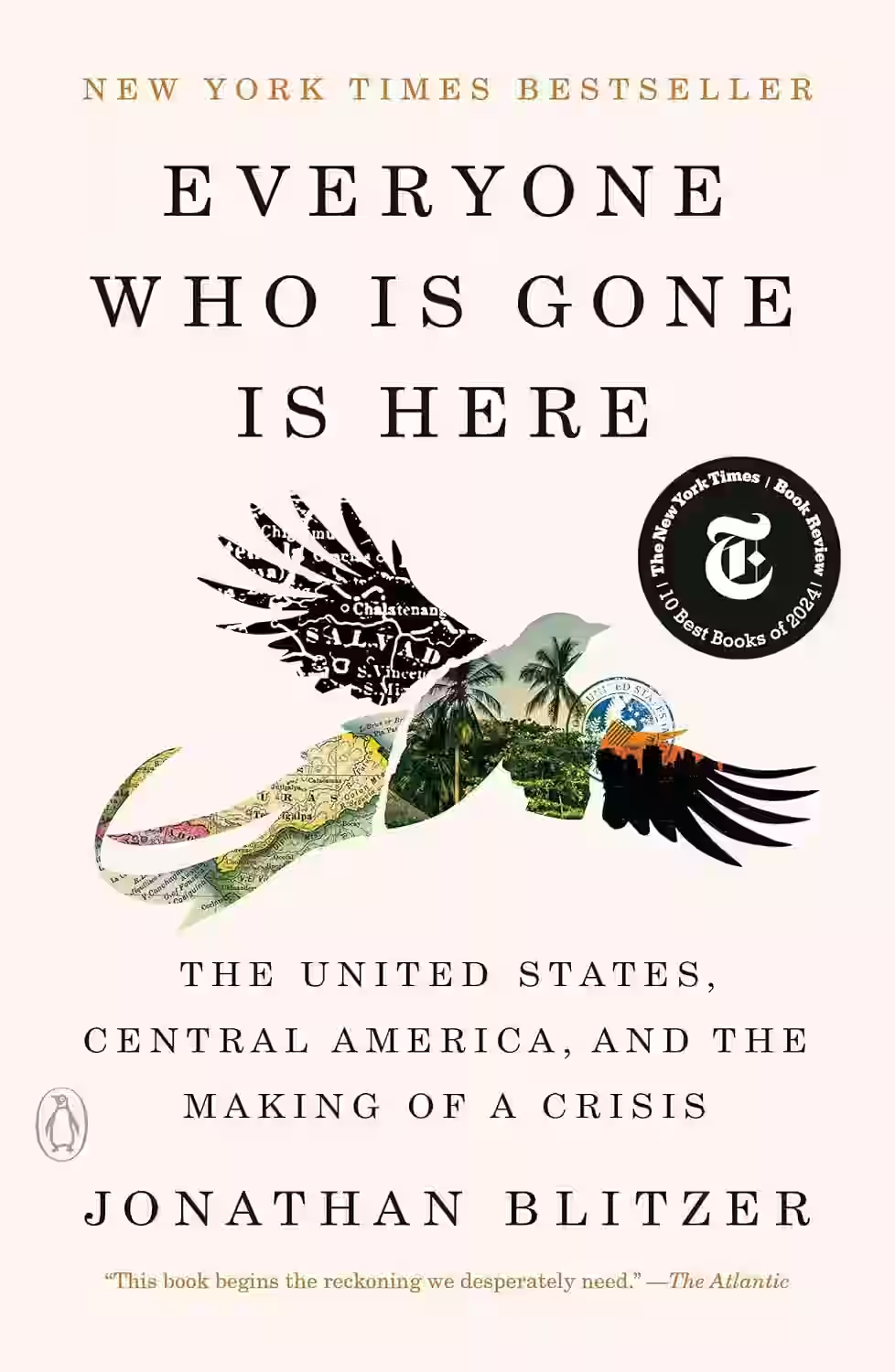
Everyone Who Is Gone Is Here
In Everyone Who Is Gone Is Here, Jonathan Blitzer examines Central American migration to the United States, focusing on El Salvador, Honduras, and Guatemala from the 1970s to the present day. The book weaves together individual narratives and historical analysis to illuminate the complexities of migration, U.S. foreign policy, and the resulting humanitarian crises. Blitzer's work provides a comprehensive look at the factors driving migration and the personal stories behind the headlines, offering a nuanced understanding of a pressing global issue.
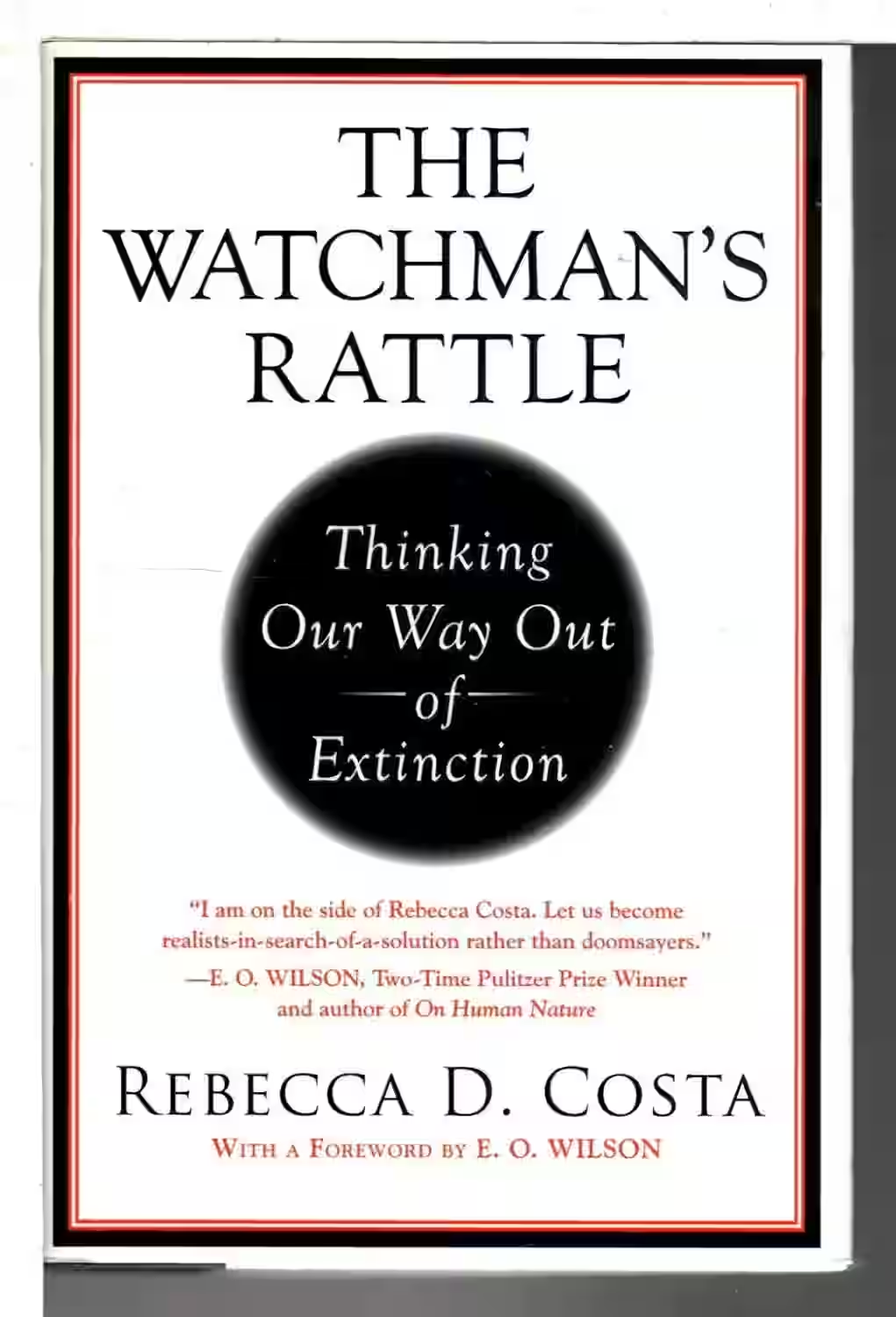
The Watchman's Rattle: Thinking Our Way Out of Extinction
Rebecca Costa’s The Watchman’s Rattle explores how civilizations collapse when complexity outpaces our ability to solve problems. Blending science, history, and psychology, she argues that as global crises become more complex, society risks paralysis unless we evolve our cognitive strategies. Costa introduces the idea of “cognitive threshold,” suggesting we must adopt new ways of thinking—such as intuition and pattern recognition—to survive modern challenges. The book links ancient failures with contemporary threats like climate change and global instability. It’s a call to embrace adaptive thinking before our most pressing problems become unsolvable.
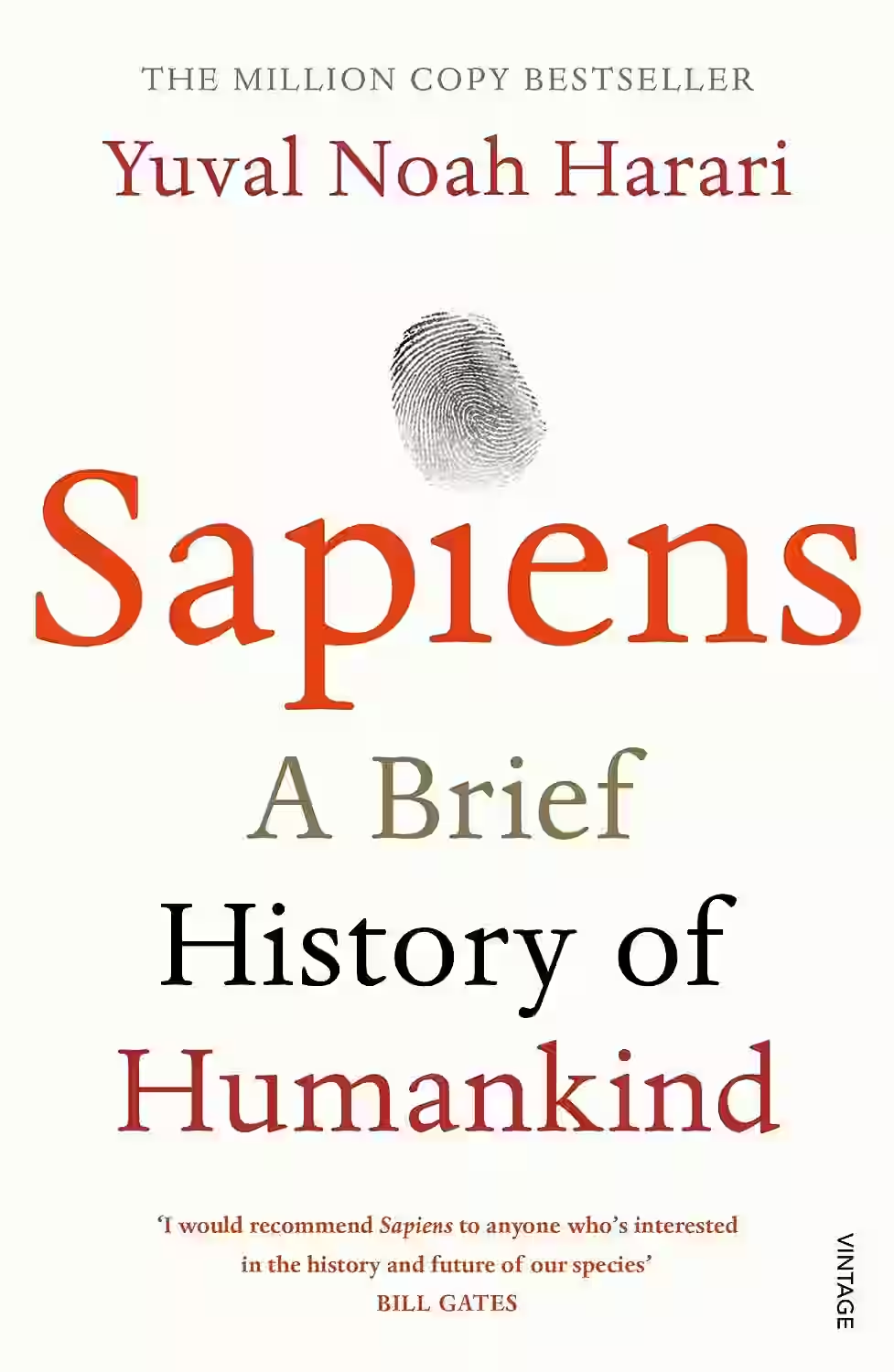
Sapiens: A Brief History of Humankind
Yuval Noah Harari's Sapiens charts the epic history of humankind, from early Homo sapiens to today's complex world. It explores the Cognitive, Agricultural, and Scientific Revolutions that defined our development. Harari examines the role of shared beliefs in enabling mass cooperation and questions the essence of our humanity and future. This insightful work offers a broad perspective on our origins, progress, and the challenges we face.
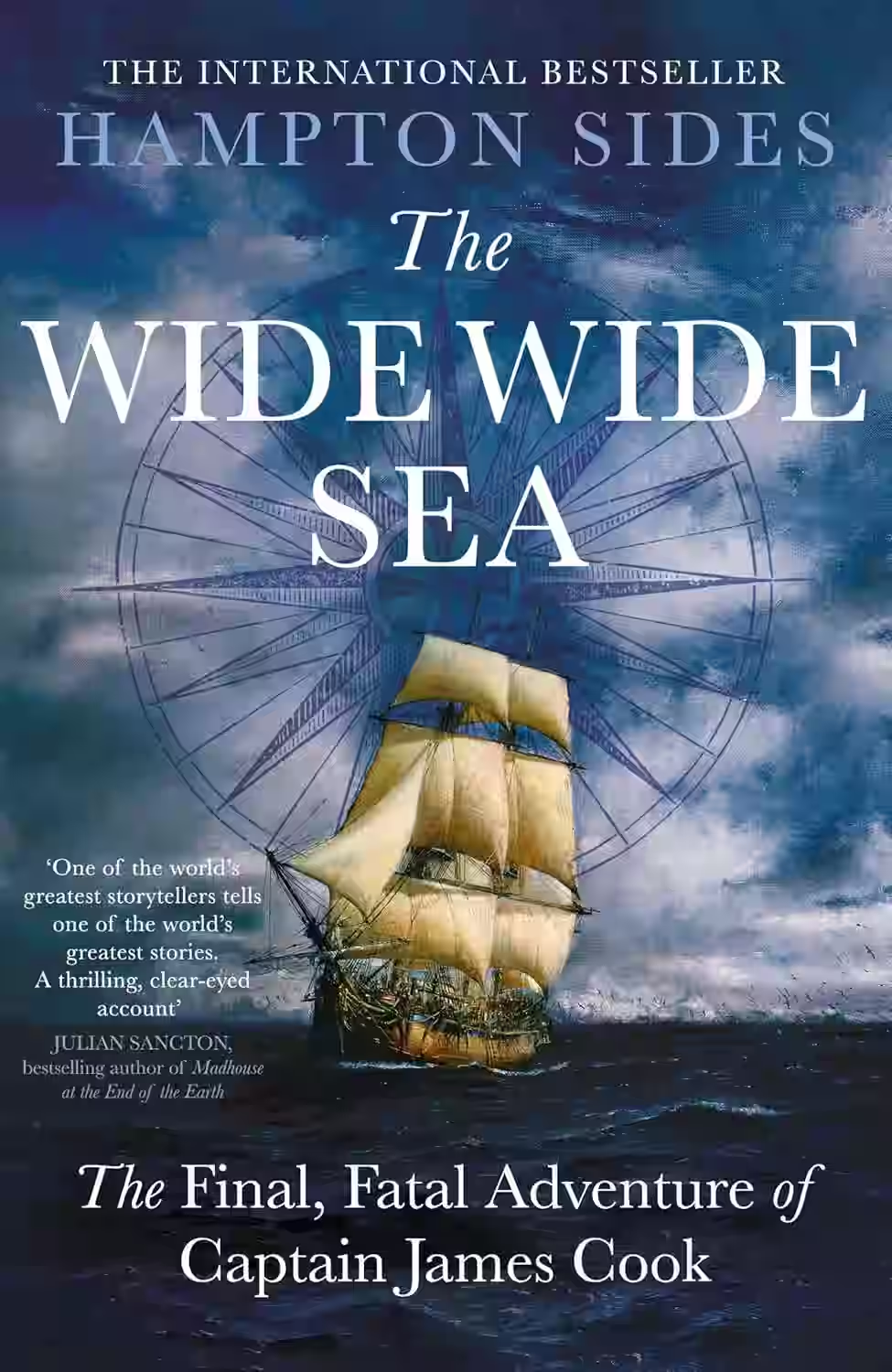
The Wide Wide Sea
Hampton Sides' The Wide Wide Sea provides an account of the final voyage of Captain James Cook, emphasizing the dramatic encounters and tragic events that defined this historical journey. Sides delves into the 18th-century world of maritime exploration, highlighting the complexities and significance of Cook's interactions with Indigenous populations. The narrative offers a detailed examination of imperial ambition, first contact, and the fateful consequences of exploration, shedding light on a pivotal moment in history with clarity and depth.
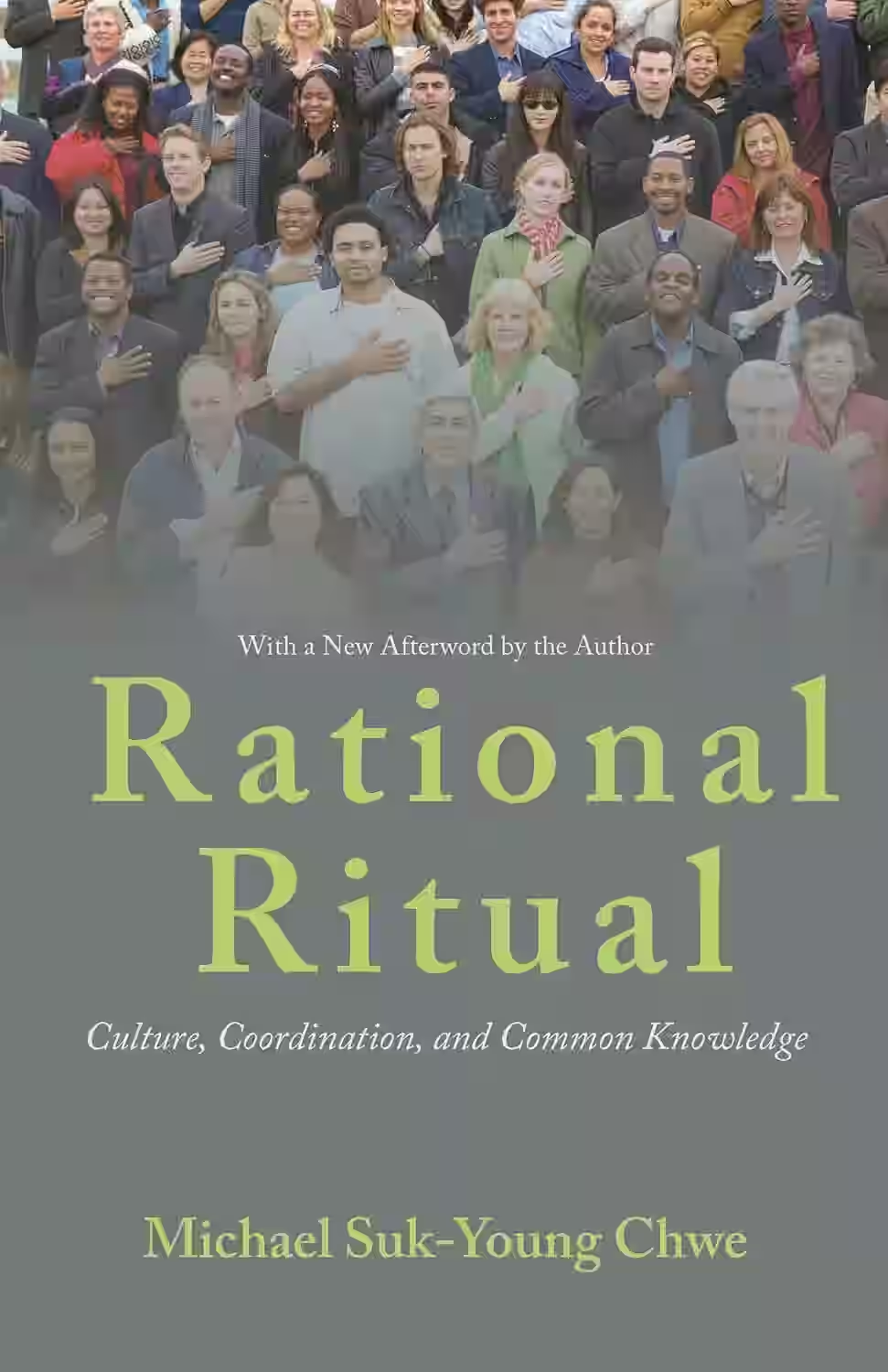
Rational Ritual
Rational Ritual explores how rituals—from presidential inaugurations to sports events—create common knowledge, a shared awareness that everyone knows everyone knows. Chwe, a game theorist, argues that these shared experiences are vital for coordination in society. By applying game theory to cultural rituals, he sheds light on why such practices persist and how they help societies function. The book offers unique insights into advertising, politics, and social networks. Zuckerberg recommended Rational Ritual for its relevance to online platforms, where creating and managing shared experiences is key. It’s an intellectually stimulating read for anyone interested in the intersection of culture and logic.
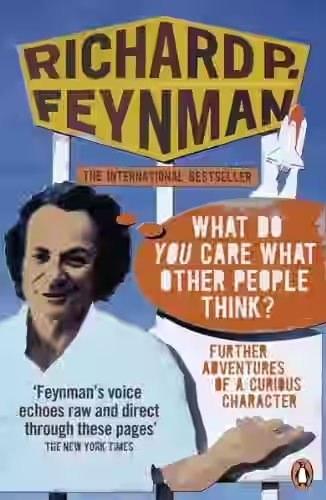
What Do You Care What Other People Think?
Richard Feynman, Nobel laureate and icon, was a genius with an insatiable appetite for adventure and a remarkable talent for storytelling. This collection of short pieces and reminiscences reveals his diverse passions, from his appreciation of beauty to his college antics and the unique lessons imparted by his father. Feynman takes us behind the scenes of the Challenger investigation, vividly recounting his pivotal experiment that exposed the disaster's cause. He also shares the poignant story of meeting his beloved first wife, Arlene, and their brief, cherished time together. Infused with Feynman's characteristic curiosity and zest for life, these writings are both deeply moving and wonderfully humorous.
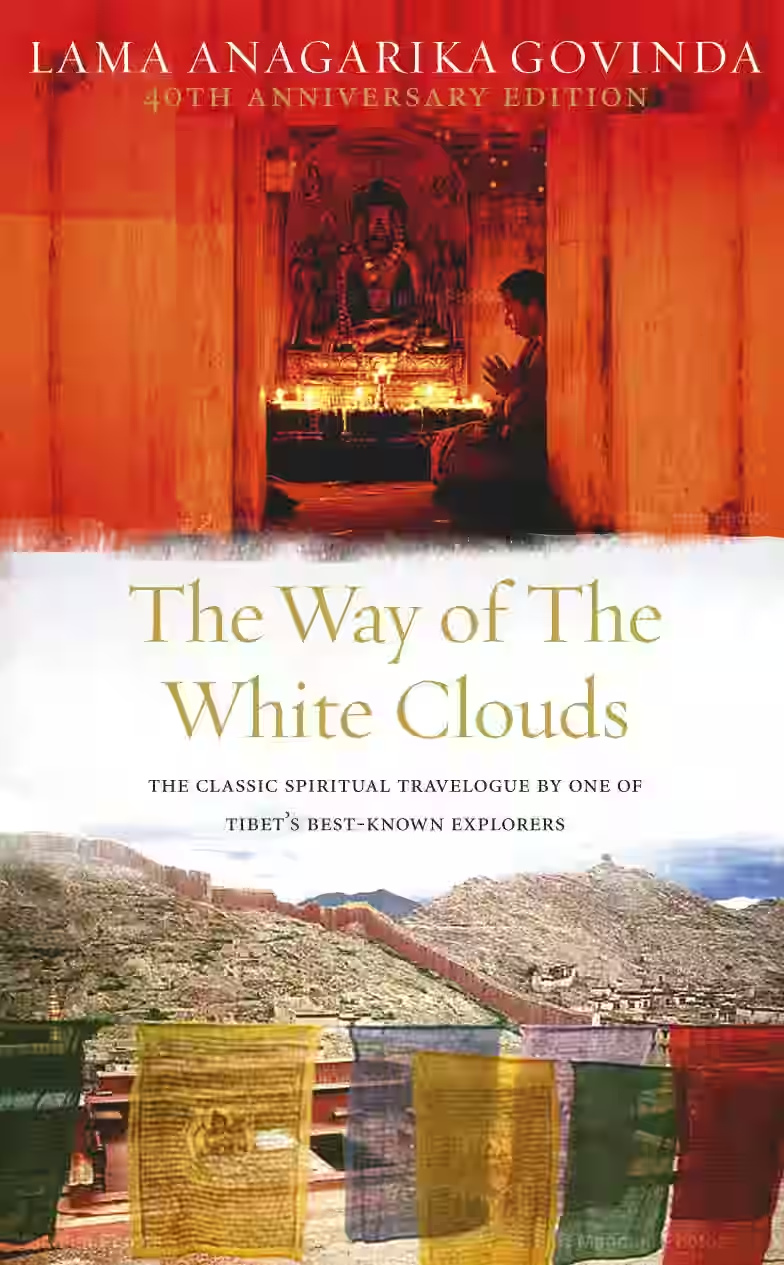
The Way of the White Clouds
This spiritual travelogue chronicles Lama Govinda’s journey through the Himalayas in search of sacred Buddhist teachings and practices. Merging travel writing with philosophical reflection, the book details encounters with monks, yogis, and the mystical landscapes of Tibet. With poetic language and deep reverence, Govinda explores Tibetan Buddhism, meditation, and the inner path to enlightenment. His experiences illuminate the harmony between inner and outer worlds. As a bridge between Eastern and Western spiritual traditions, the book has inspired generations of seekers interested in Tibetan culture, mysticism, and the transformative power of contemplative pilgrimage.
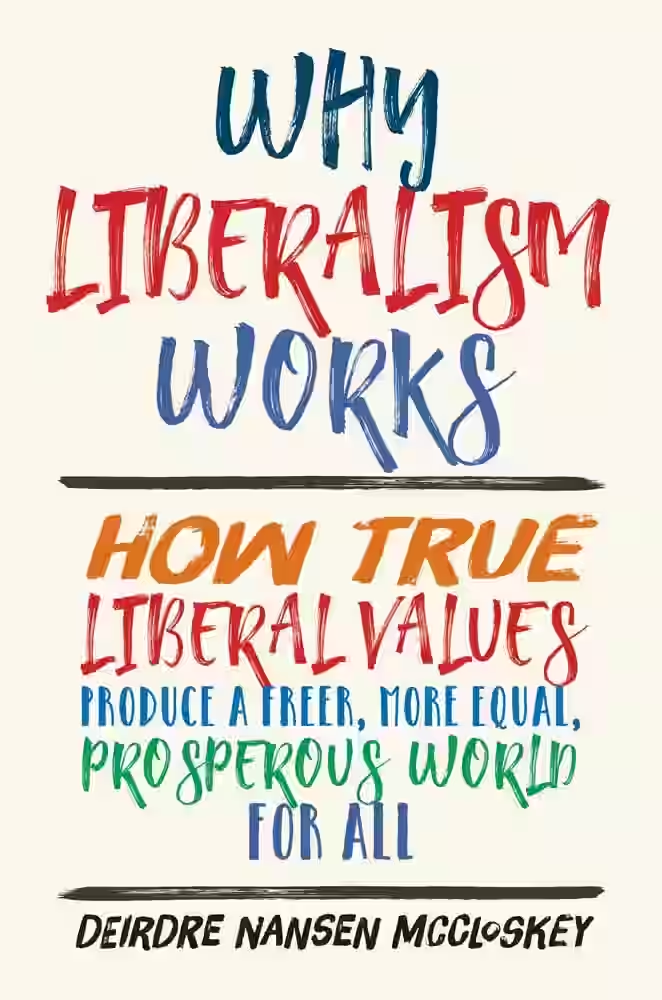
Why Liberalism Works
In Why Liberalism Works, economist and historian Deirdre McCloskey mounts a spirited defense of classical liberalism—the belief in individual liberty, free markets, and democratic governance. She argues that liberal ideas have lifted billions from poverty, expanded human rights, and created unprecedented prosperity. McCloskey critiques both right-wing nationalism and left-wing authoritarianism, warning against threats to liberal values. Blending historical analysis with economic insight, the book challenges modern skepticism toward capitalism and open societies. It is a timely reaffirmation of liberalism's moral and practical foundations, encouraging a renewed commitment to tolerance, innovation, and dignity for all individuals.
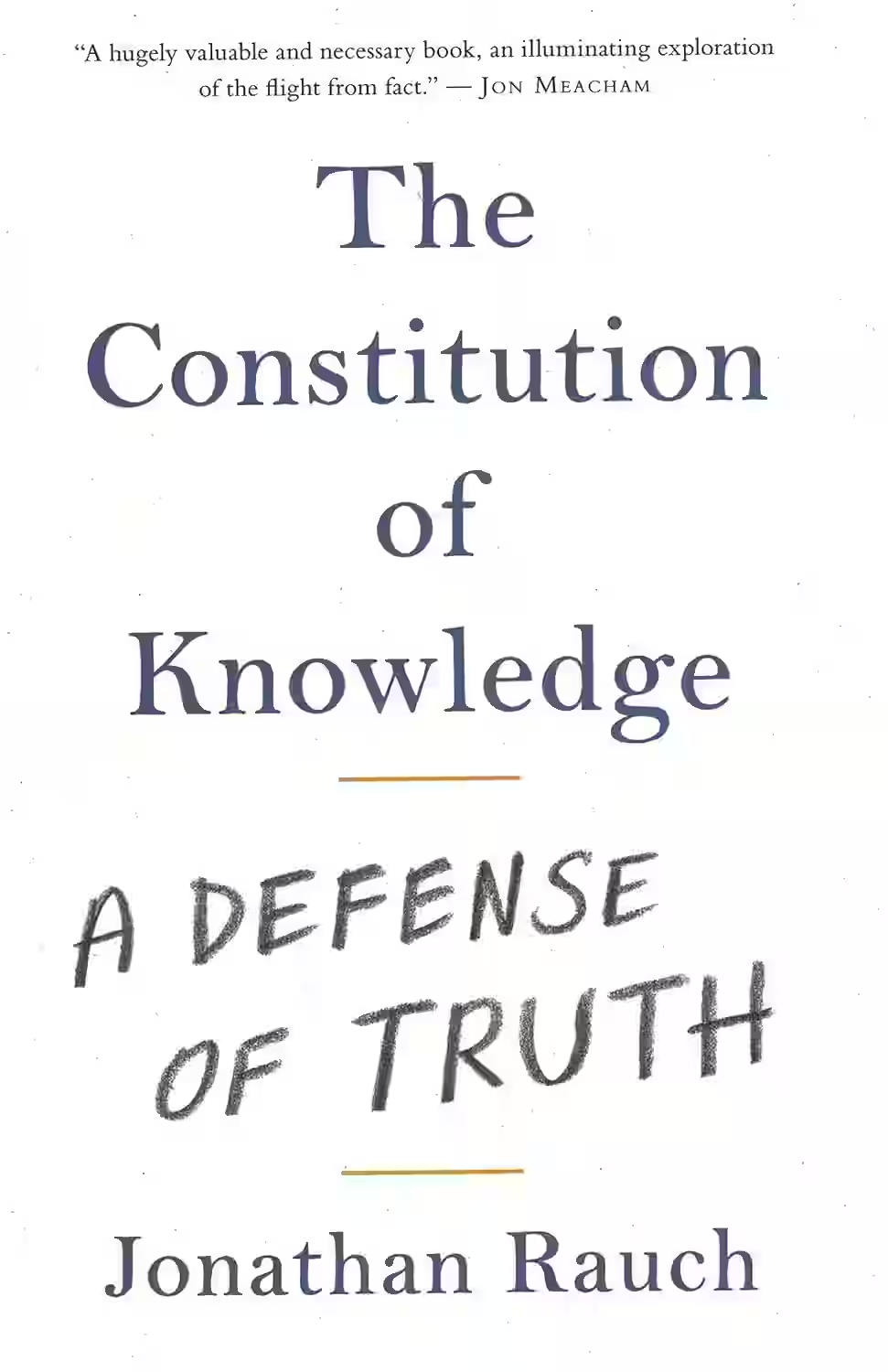
The Constitution of Knowledge
In The Constitution of Knowledge, Jonathan Rauch defends the epistemic institutions—science, journalism, academia—that uphold truth in democratic societies. He explores how norms like open debate, peer review, and fact-checking serve as a “constitution” governing the marketplace of ideas. Amid rising disinformation and tribal polarization, Rauch argues for preserving this knowledge system through free speech, tolerance, and intellectual humility. Blending political philosophy, history, and media studies, the book is both a defense and a roadmap for safeguarding truth in a digital age. It's an essential read for anyone concerned about democracy, truth, and the future of civil discourse.
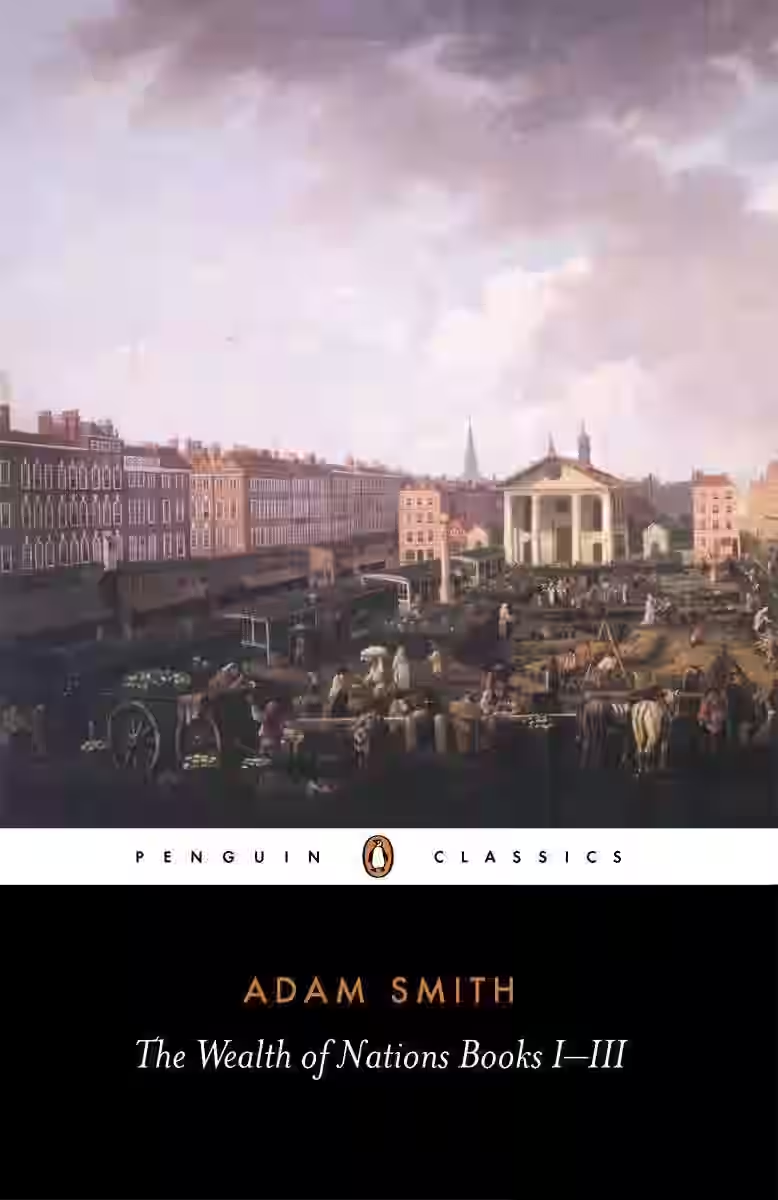
The Wealth of Nations: Books I-III
by Adam Smith
Series: The Wealth of Nations (#1)
In Books I–III of The Wealth of Nations, Adam Smith lays the foundation of classical economics by exploring the nature of labor, productivity, and market systems. He introduces the concept of the "invisible hand" and argues that individual self-interest can promote the public good through free-market mechanisms. Book I focuses on the division of labor and value, Book II on capital and stock, and Book III on the historical evolution of economic systems. Smith’s analysis of productivity, competition, and the role of self-regulation revolutionized economic thought and established key principles that underpin modern capitalism and economic theory.
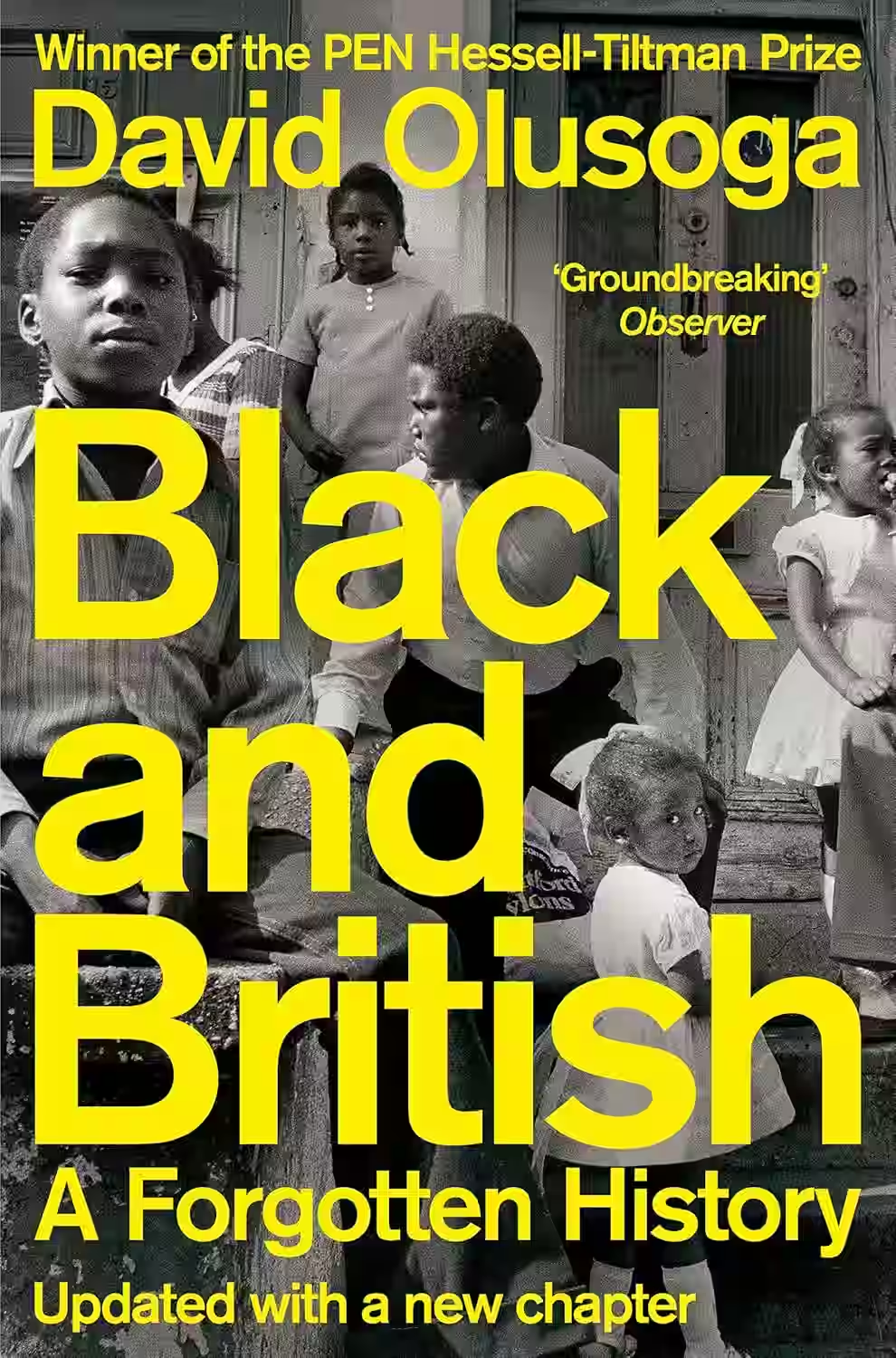
Black and British
Historian David Olusoga presents a comprehensive exploration of Black British history, tracing its roots from Roman times to the present day. The book challenges the traditional narrative of British history by illuminating the long-standing presence, struggles, and contributions of Black people in the UK. Olusoga combines meticulous research with powerful storytelling to highlight systemic injustices and the resilience of communities. Black and British is both an essential corrective and a deeply engaging chronicle, helping readers understand Britain's colonial past and its enduring impact on race relations and identity.
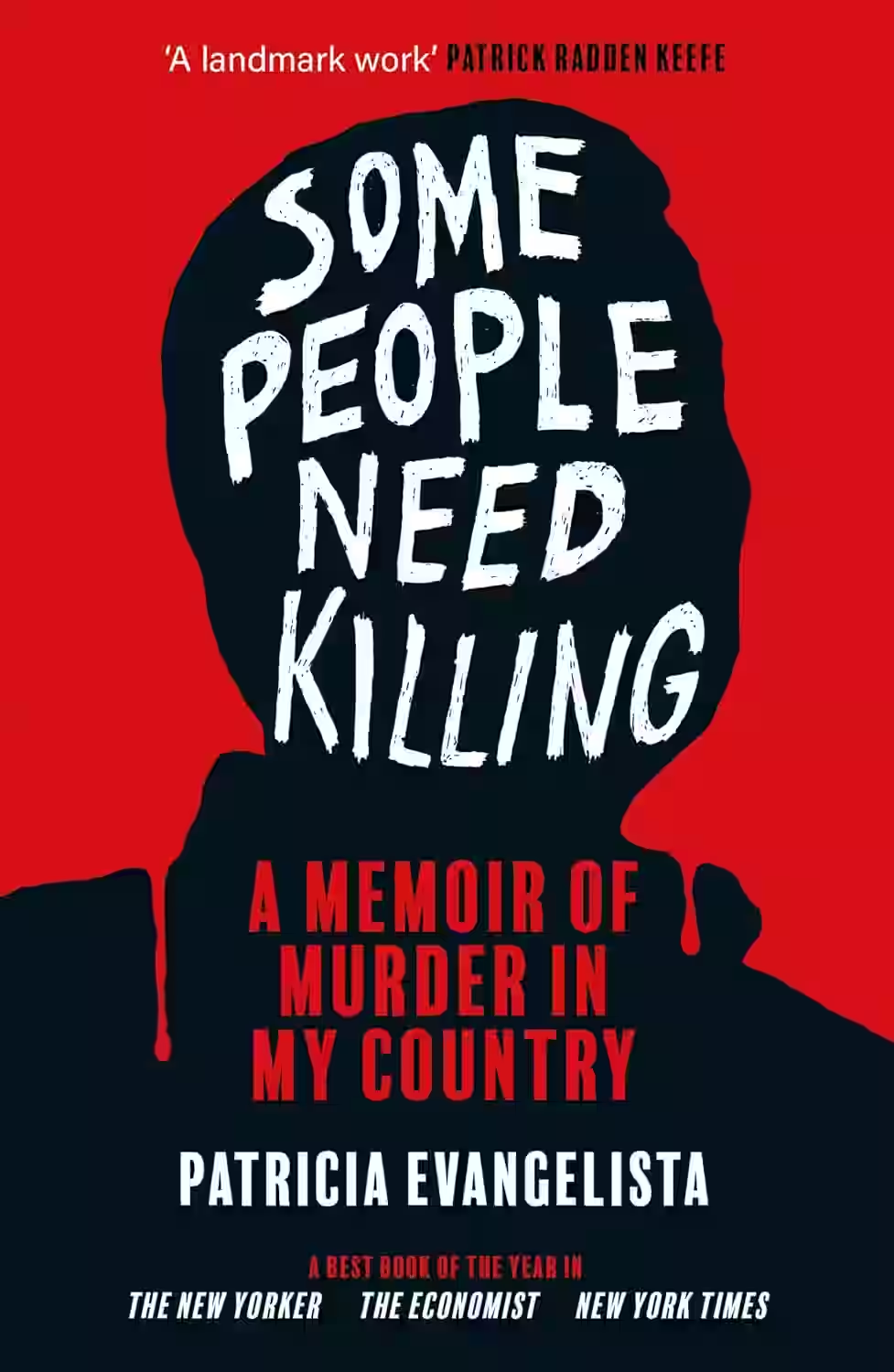
Some People Need Killing
In this harrowing and deeply reported memoir, journalist Patricia Evangelista documents Rodrigo Duterte’s brutal war on drugs in the Philippines. Drawing from years of firsthand reporting, Evangelista chronicles the violence, propaganda, and moral disintegration that defined a nation’s descent into authoritarianism. Through vivid narratives of victims, enforcers, and survivors, the book becomes a powerful indictment of state-sponsored killings and a meditation on fear, complicity, and resistance. Some People Need Killing is both a work of fearless journalism and a profoundly personal reckoning with truth and accountability in the face of terror.
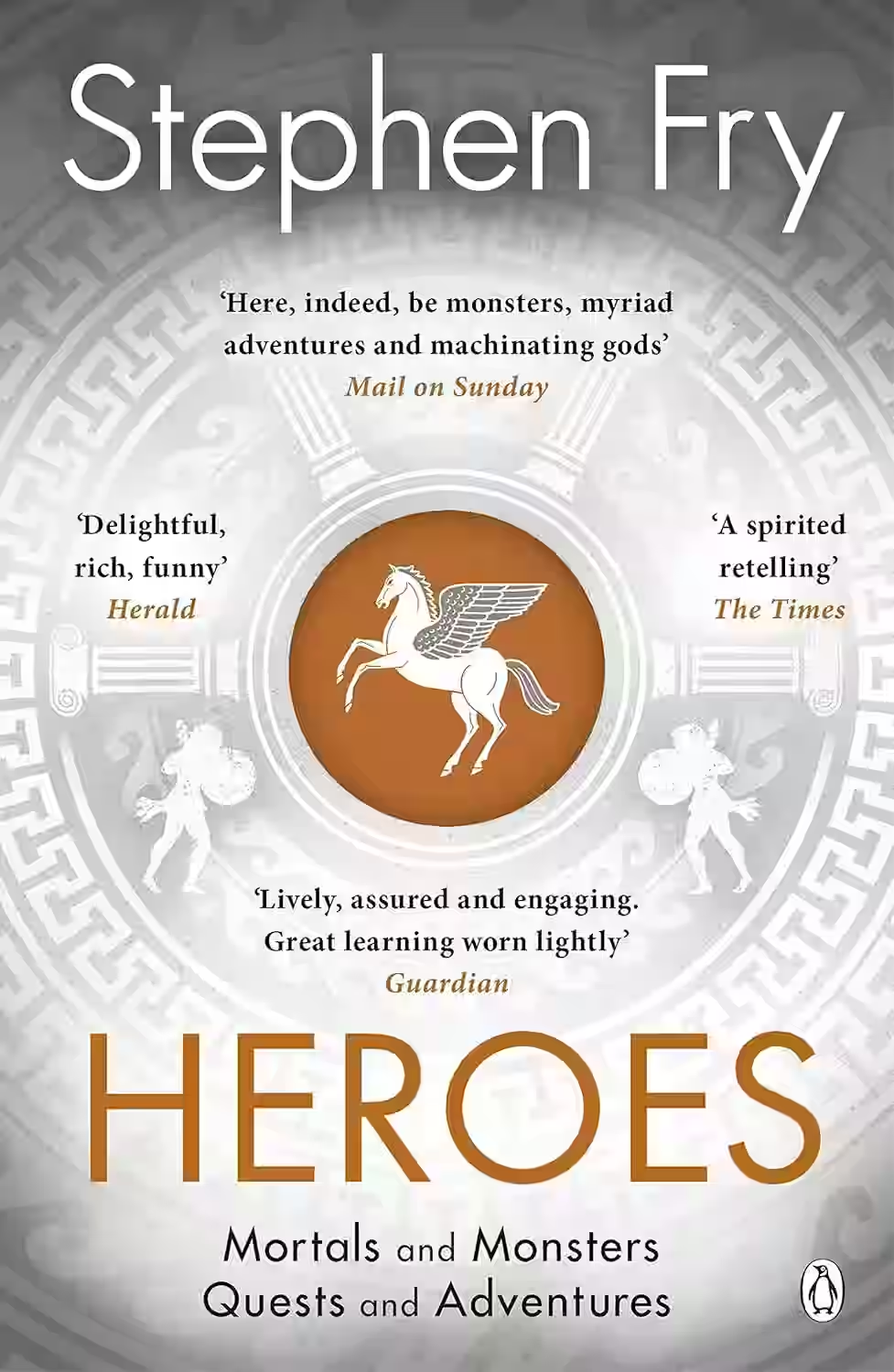
Heroes
by Stephen Fry
Following the success of Mythos, Stephen Fry stylishly retells the captivating and enduring tales of Greek heroes. These mortals embarked on extraordinary adventures, facing monstrous threats and outsmarting vengeful gods with remarkable flair. Journey with Jason on the Argo's quest for the Golden Fleece. Witness Atalanta, raised by bears, outpace all men until a golden deception. See clever Oedipus solve the Sphinx's riddle and Bellerophon capture the winged Pegasus to defeat the Chimera. Heroes explores the full spectrum of human potential, showcasing our greatest triumphs and deepest flaws.
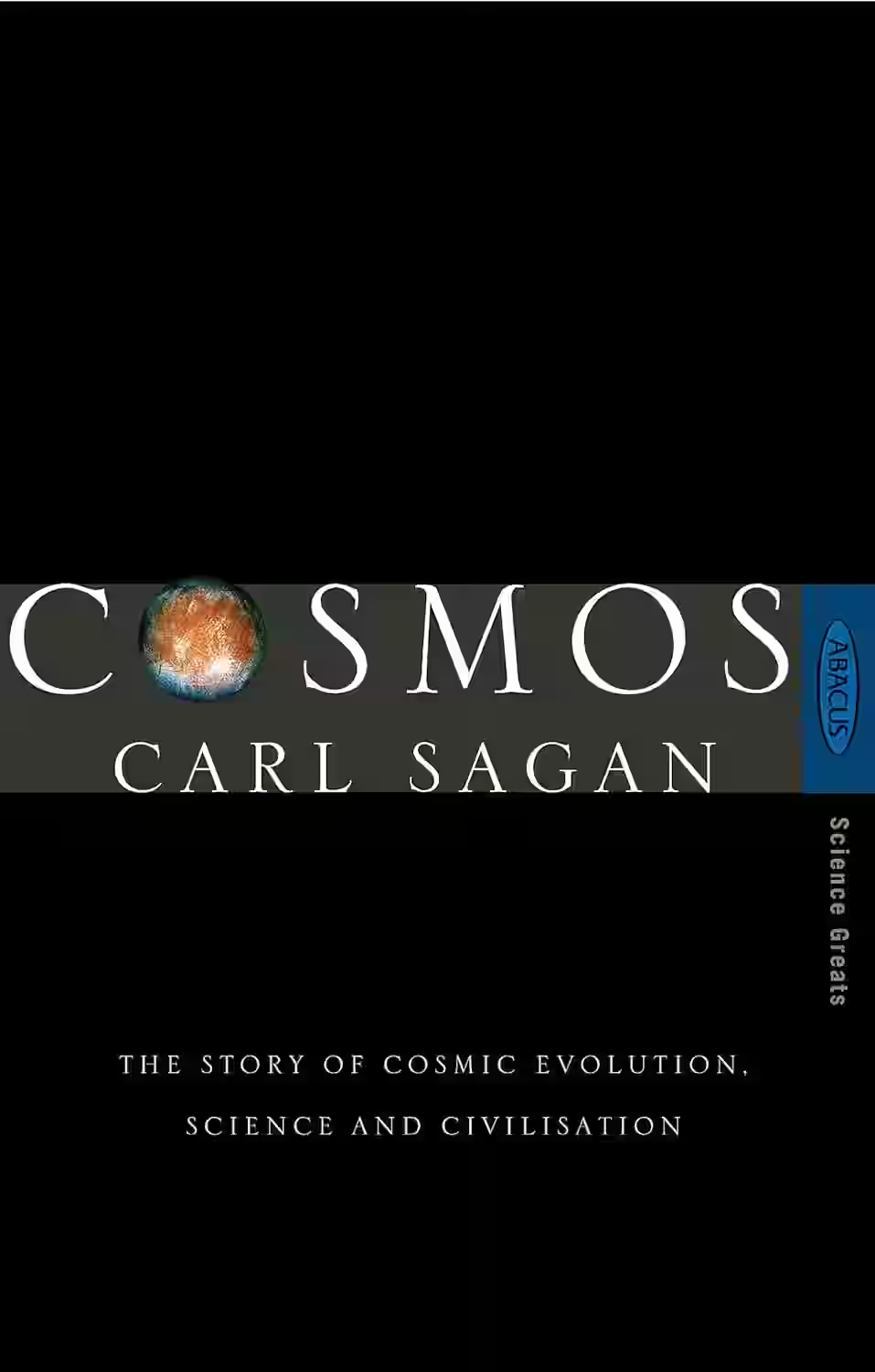
Cosmos
by Carl Sagan
In Carl Sagan's 'Cosmos', readers embark on a thrilling journey through the vast cosmos, exploring the wonders of our universe and humanity's place within it. With profound insight and poetic prose, Sagan delves into topics like space exploration, evolution, and the origins of life, bridging science and philosophy seamlessly. Through this masterpiece, he ignites a sense of curiosity and awe, urging us to ponder our existence and the mysteries of the cosmos. 'Cosmos' not only educates but also inspires readers to embrace science and reason, fostering a greater appreciation for the interconnectedness of all things.
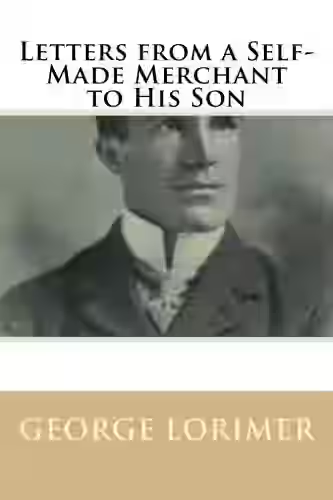
Letters from a Self-Made Merchant to His Son
First published in 1901, this epistolary book presents fictional letters from a successful Chicago pork packer to his college-aged son. Blending wit, business acumen, and life wisdom, the father offers advice on work ethic, integrity, personal character, and money management. Written in a candid and humorous tone, the book delivers old-fashioned common sense that remains surprisingly relevant. It's a manual not just for business, but for becoming a responsible and grounded adult. The blend of fatherly guidance and entrepreneurial insight has made it a classic on both parenting and leadership.
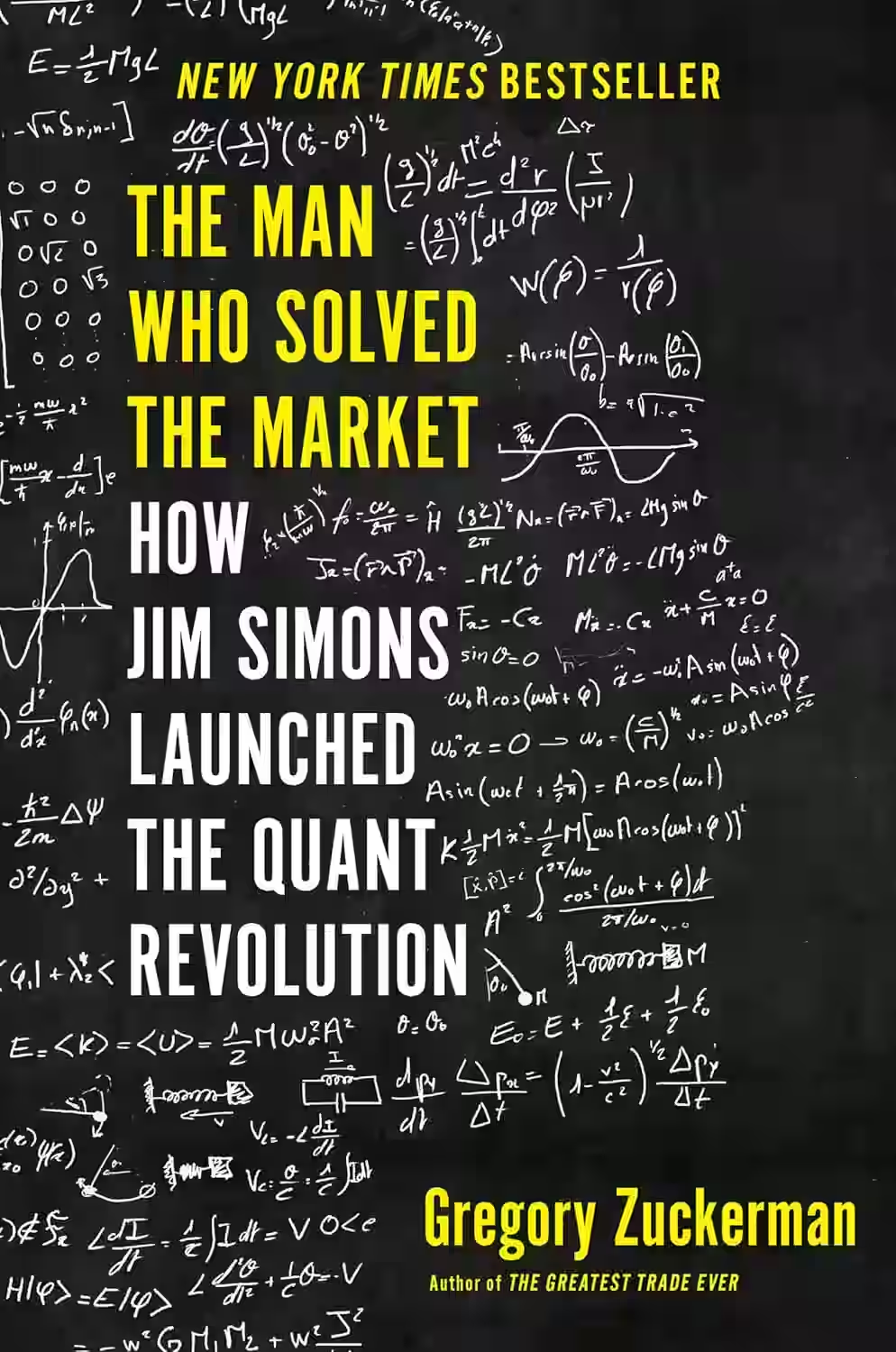
The Man Who Solved the Market: How Jim Simons Launched the Quant Revolution
In 'The Man Who Solved the Market', Gregory Zuckerman delves into the fascinating world of finance and mathematics through the lens of legendary investor Jim Simons. The book offers readers a detailed exploration of how Simons revolutionized investing through quantitative strategies at his firm, Renaissance Technologies. Zuckerman delves into Simons' life story, the challenges he faced, and the groundbreaking techniques he employed to outsmart Wall Street. Through meticulous research and compelling storytelling, Zuckerman provides keen insights into the complexities of financial markets and the brilliance of Simons' approach. This book is a must-read for anyone intrigued by the intersection of math and money.
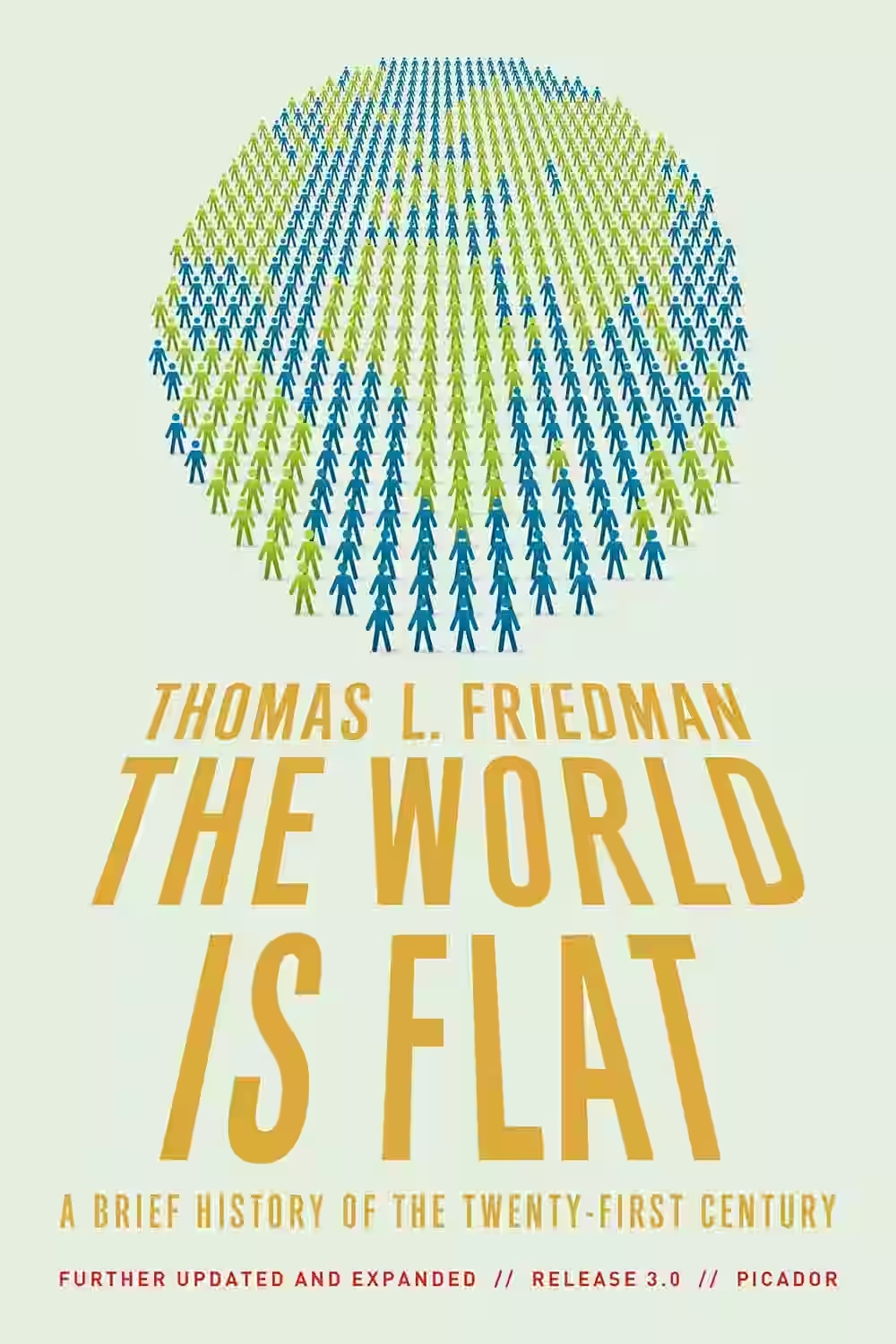
The World Is Flat
In 'The World Is Flat,' Thomas L. Friedman explores the concept of globalization and its impact on our interconnected world. He delves into how technological advancements, particularly the rise of the internet, have leveled the playing field for individuals and businesses worldwide, creating both opportunities and challenges. Friedman argues that in this 'flat' world, countries and individuals must adapt to stay competitive. Through engaging anecdotes and analysis, the author paints a vivid picture of a world where traditional boundaries are becoming increasingly blurred. This thought-provoking book challenges readers to rethink their place in a globalized society.
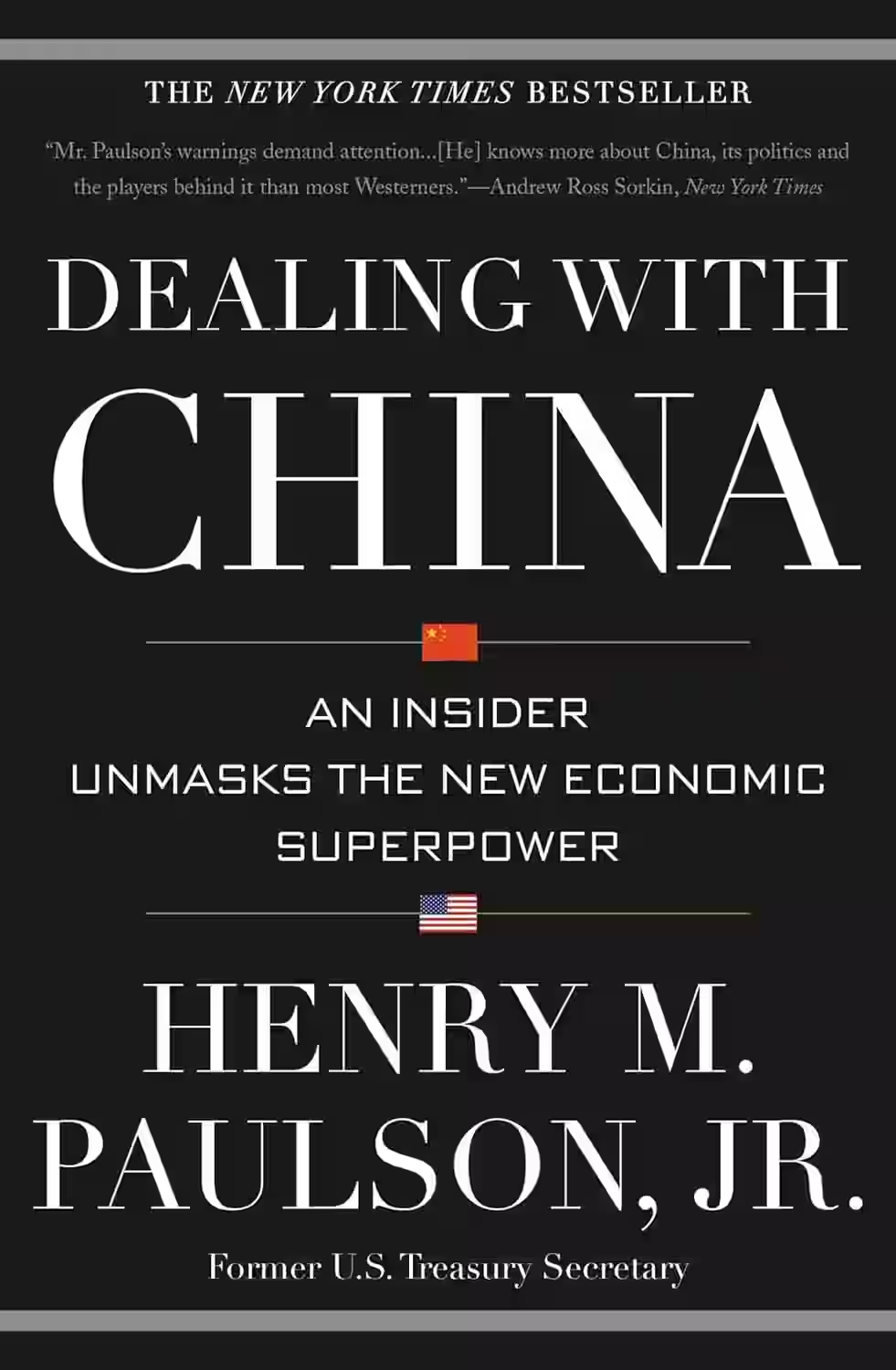
Dealing with China
Former U.S. Treasury Secretary Henry Paulson offers an insider’s perspective on China’s economic transformation and its complex relationship with the United States. Drawing on his years of engagement with Chinese leaders as a top executive at Goldman Sachs and a U.S. policymaker, Paulson charts China’s rise, challenges, and ambitions. He candidly addresses issues like financial reform, environmental policy, and the shifting global power balance. Dealing with China is both a memoir and a strategic guide, offering practical insights for navigating U.S.–China relations in an increasingly interconnected world. It’s essential reading for policymakers, investors, and global thinkers.
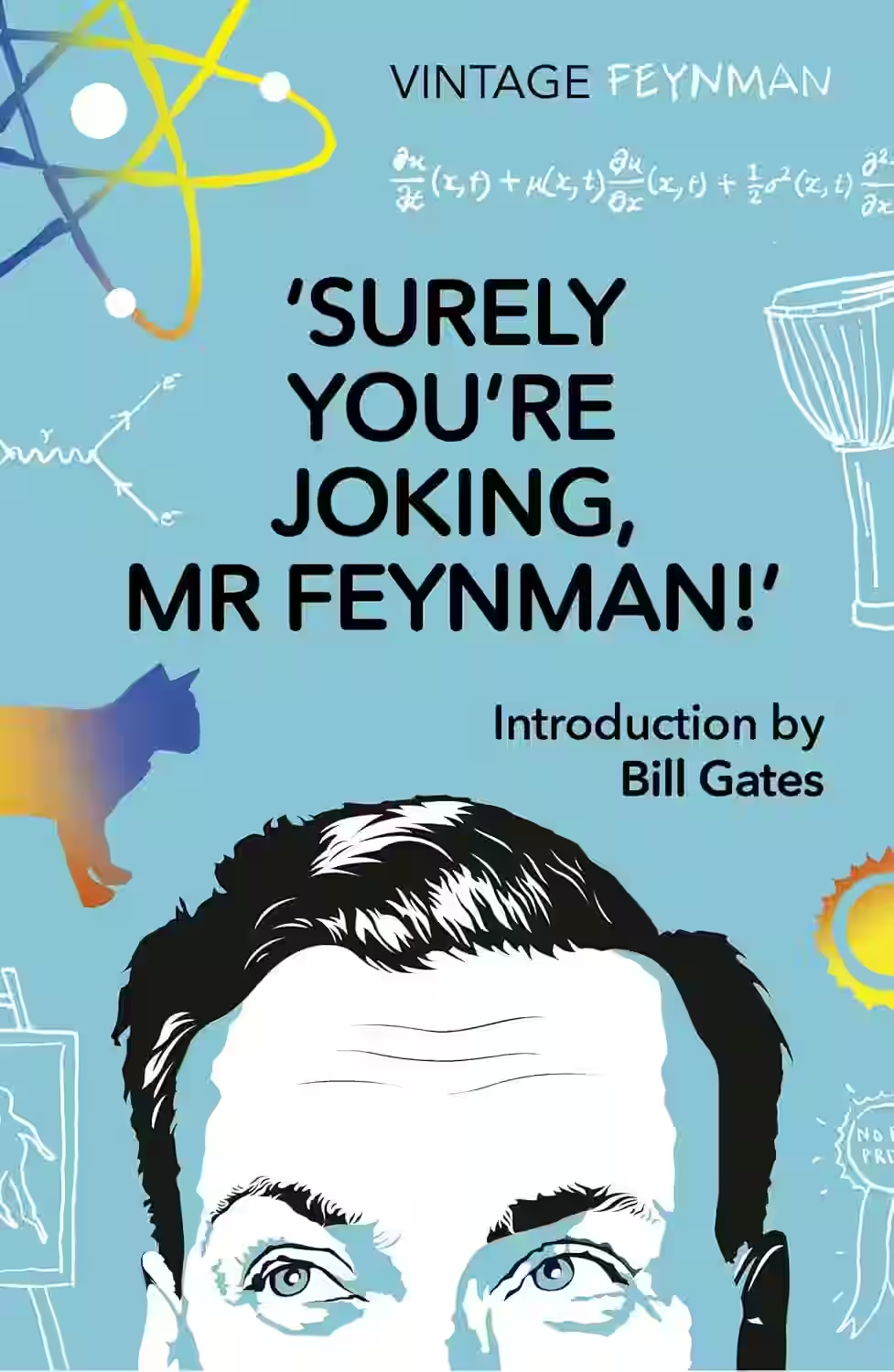
Surely You're Joking Mr Feynman
This warm and insightful portrait captures the wisdom, humor, and boundless curiosity of Nobel Prize-winning physicist Richard Feynman through intimate conversations with his friend Ralph Leighton. Beyond his groundbreaking theoretical work, Feynman was a man of adventure – an artist, safecracker, practical joker, and captivating storyteller. His life, fueled by high intelligence, unyielding curiosity, and healthy skepticism, was a series of remarkable experiences. These recorded conversations, transcribed with minimal alteration, offer a wise, funny, passionate, and utterly honest self-portrait of one of the 20th century's most brilliant and engaging minds.
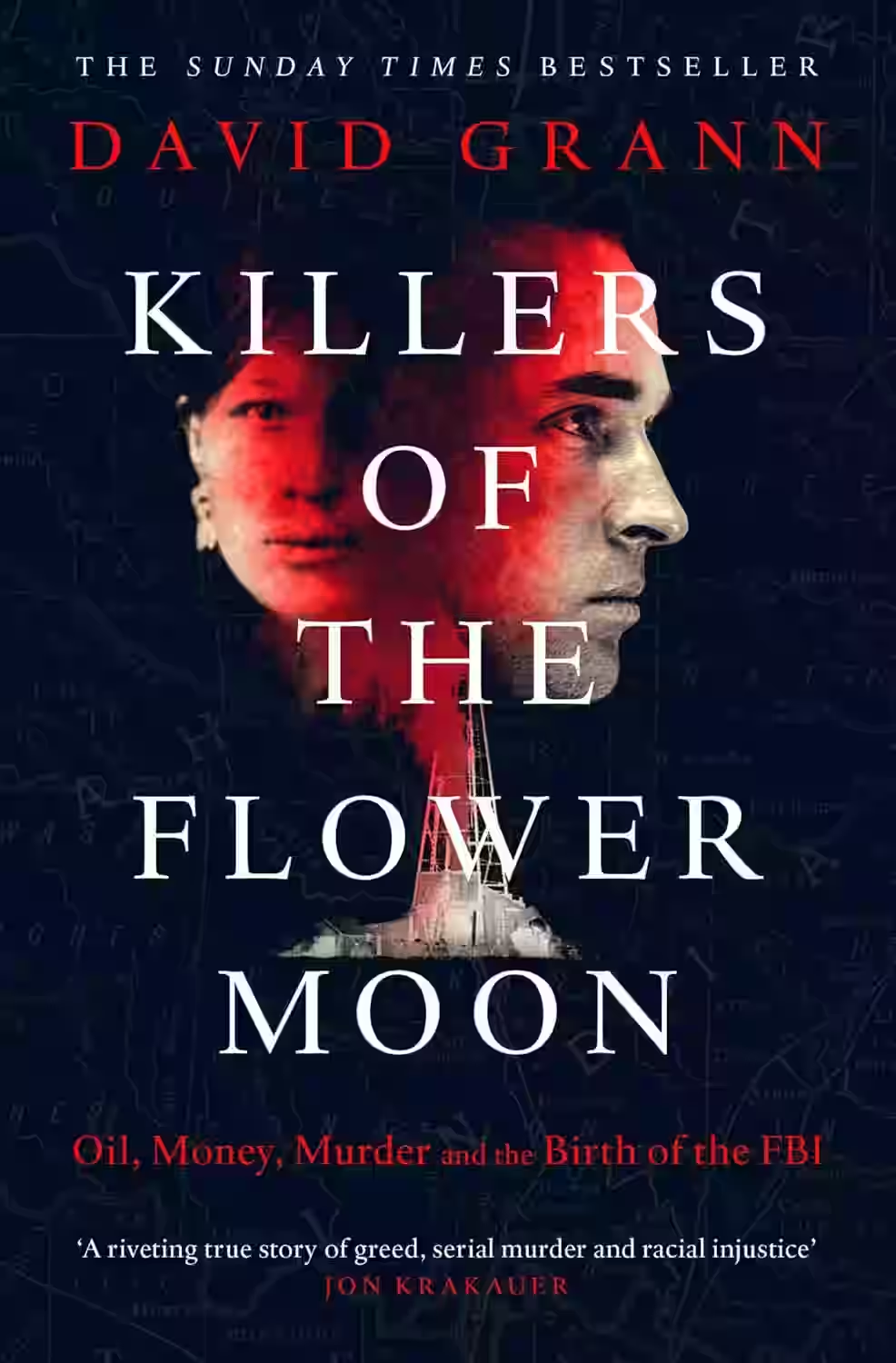
Killers of the Flower Moon
by David Grann
This gripping nonfiction work uncovers the chilling murders of Osage Nation members in 1920s Oklahoma, who were targeted for their oil wealth. As bodies piled up, the newly formed FBI took on the case—exposing a web of greed, racism, and corruption. Killers of the Flower Moon is a meticulously researched, suspenseful narrative that sheds light on a dark chapter of American history, blending true crime with a call for justice.
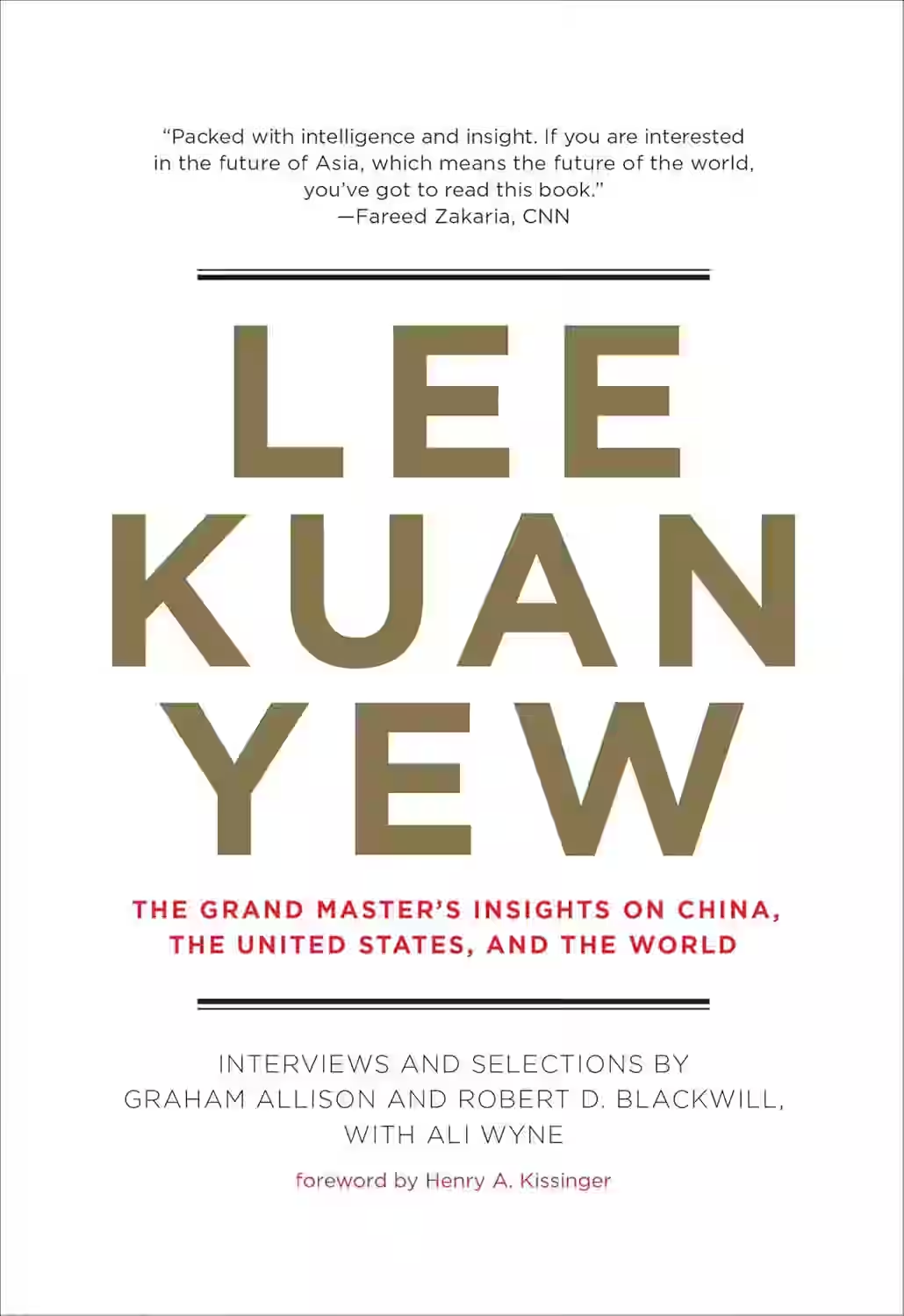
The Grand Master's Insights on China, the United States, and the World
In 'The Grand Master's Insights on China, the United States, and the World,' Graham Allison, a renowned political scientist, offers a compelling analysis of the complex dynamics between China and the United States, exploring their interactions and implications for global politics. Drawing on his expertise, Allison delves into the historical context, strategic calculations, and potential pitfalls that shape the relationship between these two global powers. Through insightful anecdotes and data-driven arguments, he sheds light on the challenges and opportunities that arise from their interactions, providing readers with a deeper understanding of the intricacies of international relations.
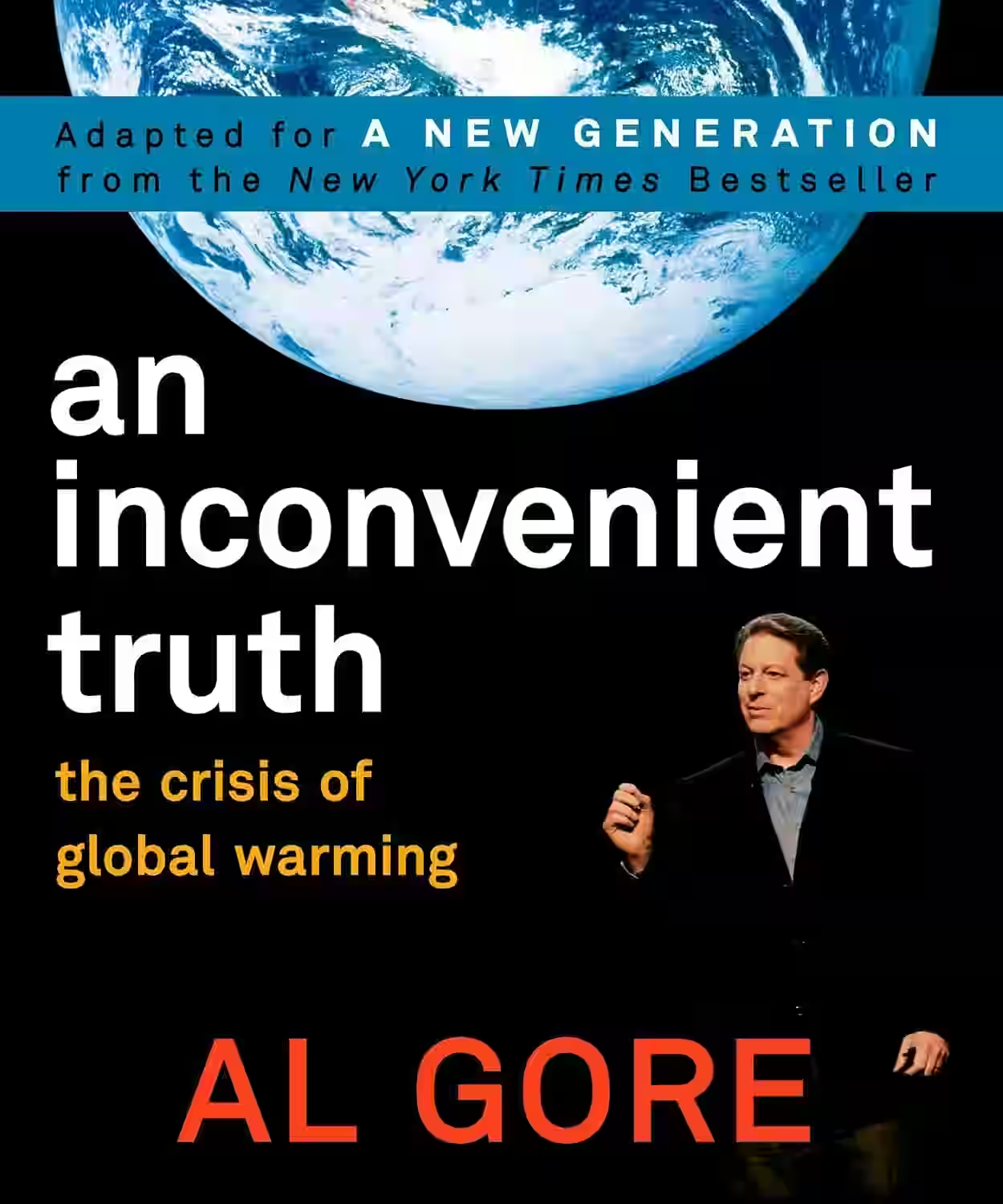
An Inconvenient Truth
by Al Gore
An Inconvenient Truth is Al Gore’s urgent and accessible plea for environmental action, based on his award-winning documentary of the same name. Using clear language, compelling visuals, and data-driven analysis, Gore explains the science and consequences of climate change. He addresses rising temperatures, melting ice caps, extreme weather, and the human behaviors driving global warming. The book combines science with personal conviction, urging readers to take responsibility for the planet’s future. It was a landmark moment in environmental awareness, sparking global dialogue and motivating individuals, communities, and governments to reconsider their impact on Earth.
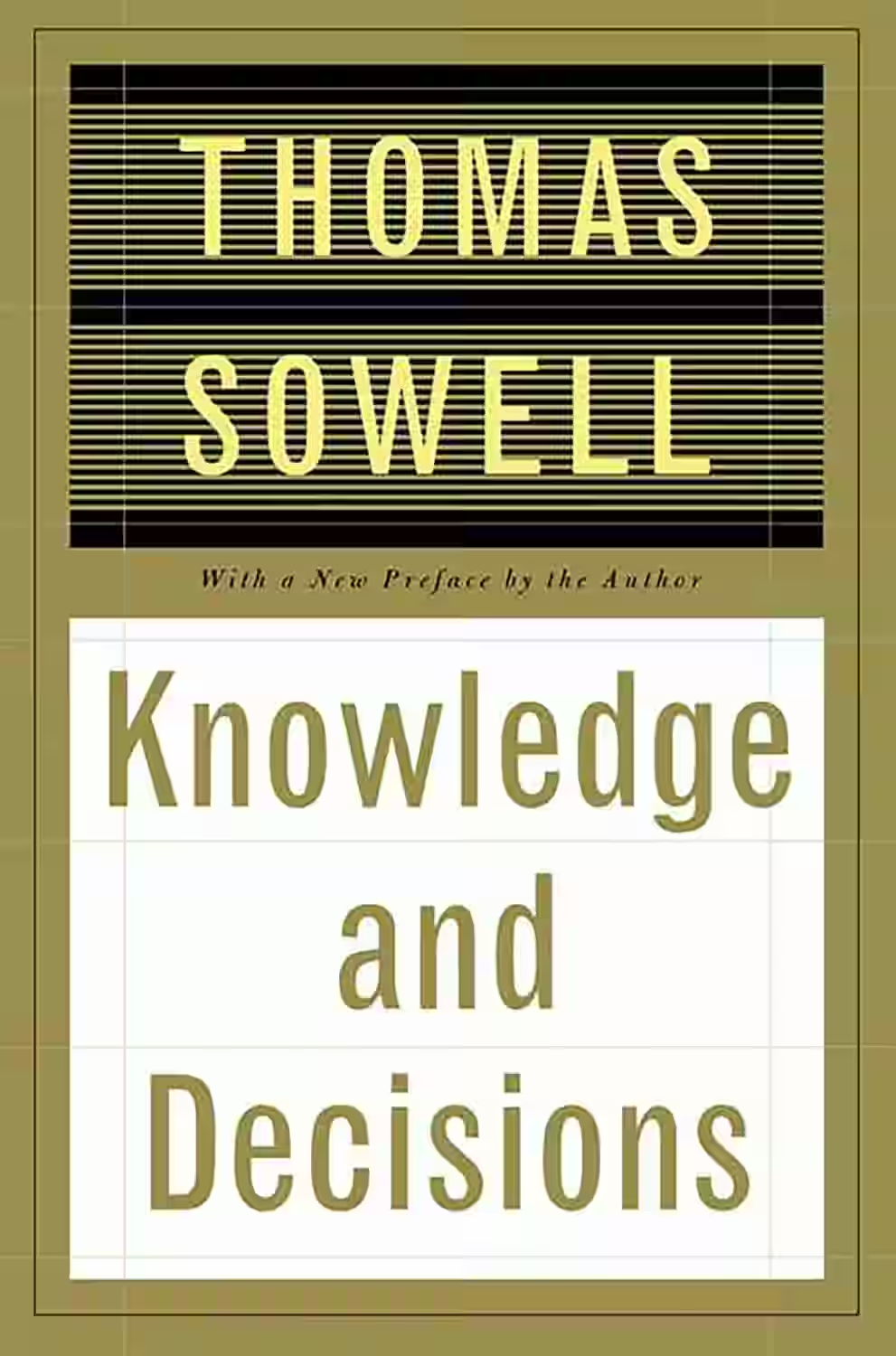
Knowledge and Decisions
Economist and political commentator Thomas Sowell explores how knowledge is distributed and used across different institutions, from markets to governments. He argues that decision-making is most efficient when decentralized and guided by incentives, rather than centralized planning. Sowell highlights how information, incentives, and constraints shape outcomes in society, emphasizing the superiority of systems that allow individuals to act on local knowledge. Rich in economic and philosophical insight, the book critiques technocratic overreach and defends free-market mechanisms. It’s considered one of Sowell’s most intellectually rigorous works, offering a deep framework for understanding how societies function.
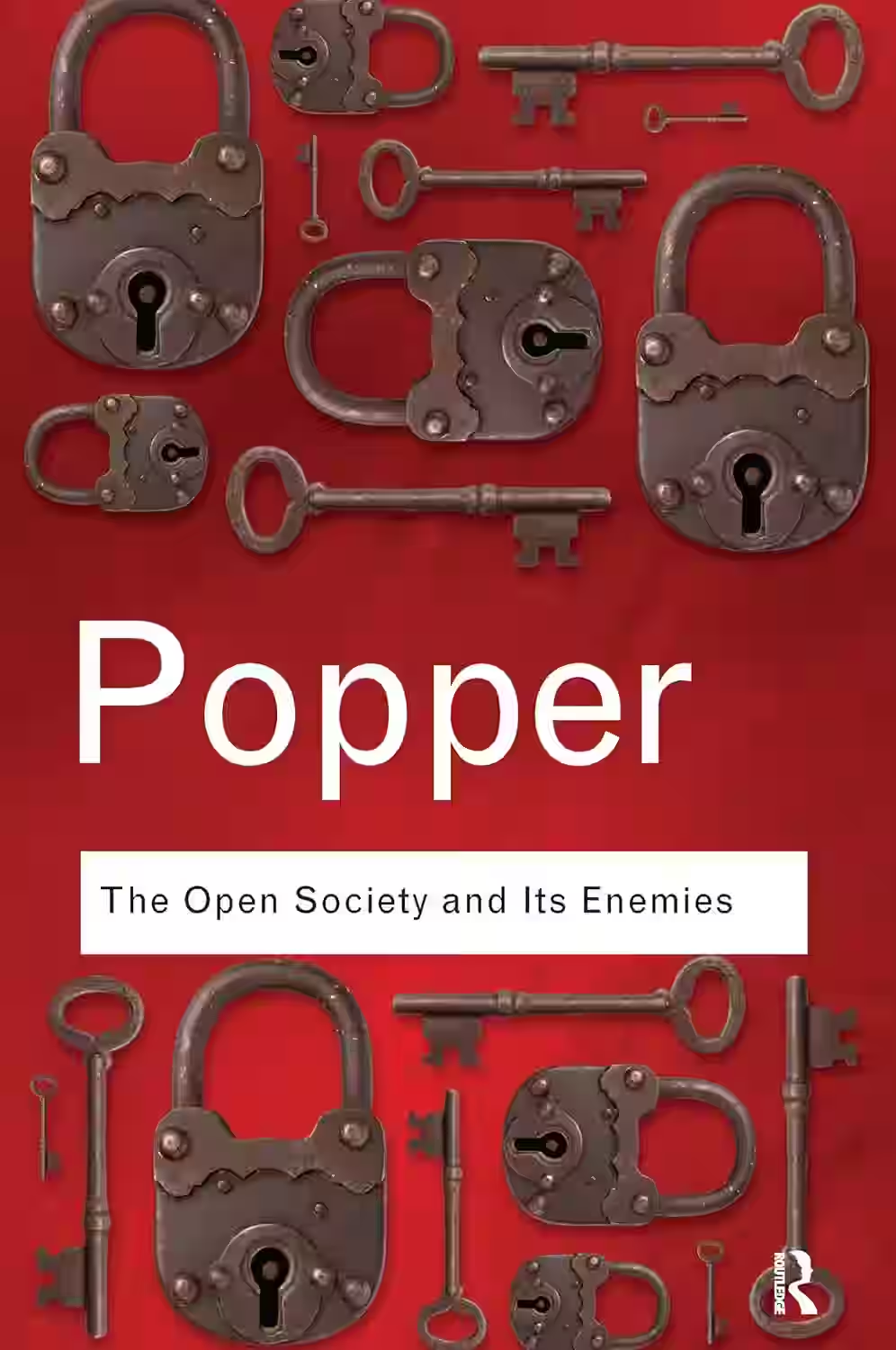
The Open Society and Its Enemies
by Karl Popper
Karl Popper's 'The Open Society and Its Enemies' is a seminal work that delves into the fundamental principles of democracy, freedom, and the dangers of totalitarianism. Through a meticulous analysis of historical and philosophical perspectives, Popper dissects the ideologies of Plato, Hegel, and Marx while championing the virtues of an open society that values critical thinking and individual rights. This intellectually stimulating book challenges readers to reevaluate their understanding of political systems and the importance of safeguarding liberal democracy. With sharp insights and compelling arguments, Popper's work remains relevant in today's world, provoking discussions on governance, societal values, and the perils of authoritarianism.